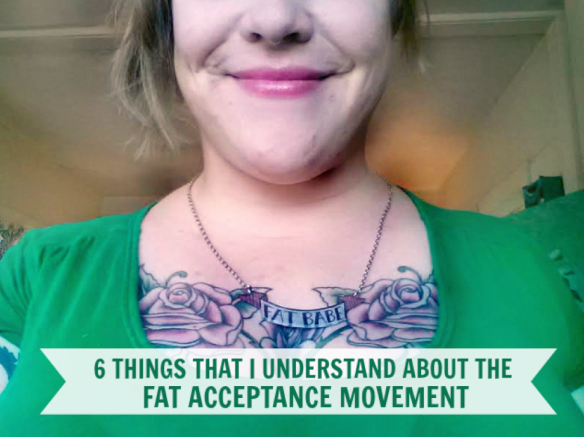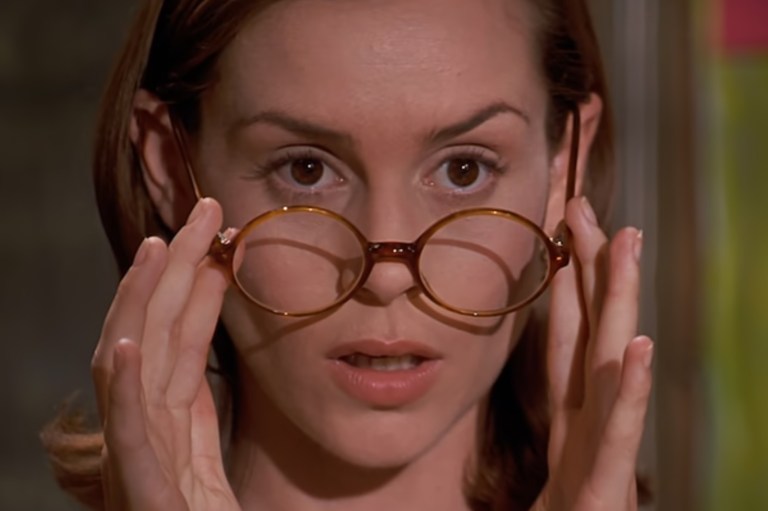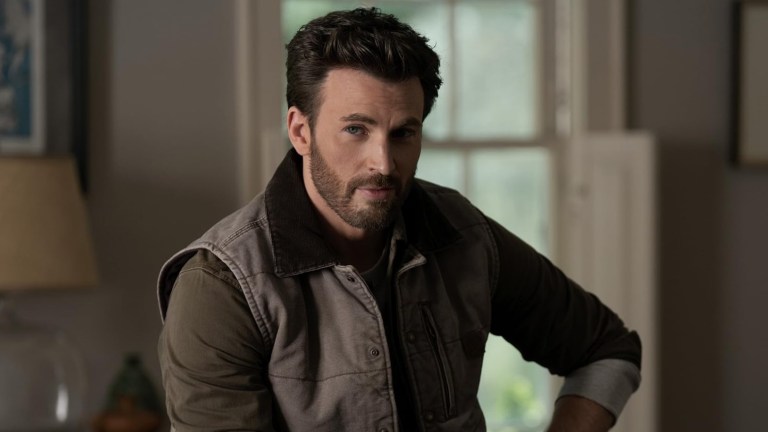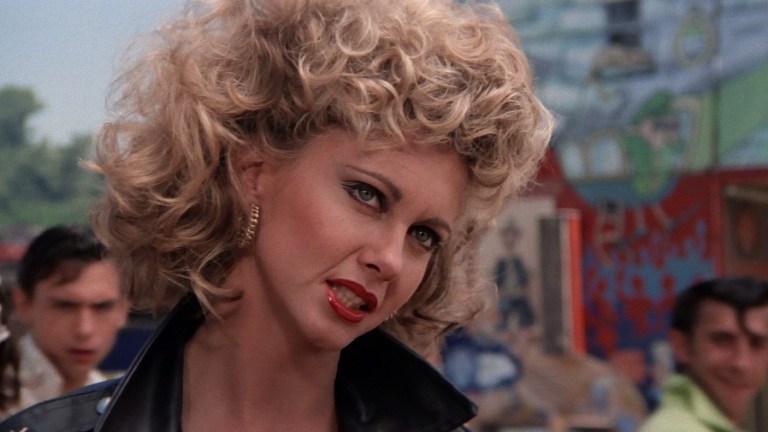
6 Things That I Understand About The Fat Acceptance Movement
The article "6 Things I Don't Understand About the Fat Acceptance Movement" is an interesting read for several reasons...
By ![]() Jes Baker
Jes Baker

The article “6 Things I Don’t Understand About the Fat Acceptance Movement” is an interesting read for several reasons… One, the author is aware of some of the key components that are discussed within the movement. She may be largely uneducated about the details, but knows enough to start a conversation. I can appreciate this. Two, she seemingly speaks from a place of ignorant concern more than malice. Also appreciated. And three, she may not necessarily be looking for the answers, but she has created a fantastic and organized opportunity for those of us educated on body love to clarify some of the most common misconceptions.
IMPORTANT NOTE: It’s critical to realize before we even begin, that ignorance of, deflecting of, or outright refusal to believe in fat acceptance affects us all. This body love movement is inclusive; it’s about acceptance for everyone (not limited to, but including fat bodies).
All bodies – large, small, and everything in between pay dearly for the negativity in which fat bodies are perceived. Why? Because as long as we demonize a body shape (any body shape) there will always be a fearful comparison. And the fearful comparison will inevitably breed all forms of hatred; both internally and externally. We will never be able to embrace our bodies as a diverse society as long as negative body messages exist. So yeah, we’re going to be talking about the “social deviants” of the body world, but this discussion is applicable to us all.
(For those of you who haven’t read the article, her text will be in italics, and my response as well as those from professionals in the field will follow!)
1. America is extremely accepting of fat.
I have not lived in many other countries in my life, but I have done it enough to know that America is exceptional in its general permissiveness about obesity and ill health. Though there may be negative stereotypes, staring, bullying, or crude comments, the environment we live in is one that is incredibly tolerant of unhealthy lifestyles. There are enormous portions, extreme levels of convenience, and a low priority put on physical activity (even in our schools). While treating someone differently because of how they look is not okay, with upwards of 60 percent obesity in certain cities, you can’t say that America is not accepting of fat people. We basically ensure that people will be fat, and are tolerant of the lifestyle choices that surround it. If anything, we need to be cracking down on it more.

Hilary Kinavey LPC, Be Nourished
It’s really easy to say something like – “America is extremely accepting of fat” if you’re not experiencing the brutality of fat discrimination. There is a ton of research out there, conducted by scientists, doctors and social scientists to prove that fat people are paid less money than their thin counterparts, that fat people receive sub-par medical care because of fat bias, that fat people are stigmatized and stereotyped in the media and that fat students are often not accepted to colleges or bullied by their educators. – Lindsey Averill, producer of Fattitude
Things you should know if you think America is accepting of fat bodies:
- Fat discrimination is the 4th most prevalent form of discrimination (Midus, 1995-1996)
- AND there has been a 50+ increase in size discrimination between 1996 and 2006. (Puhl et all, 2006)
- According to CSWD.org, “Workers who are heavier than average are paid $1.25 less an hour. Over a 40-year career, they will earn up to $100,000 less before taxes than their thinner counterparts.” (Baum, 2004)
- Also according to CSWD.org, “Of people who were 50% or more above their ideal weight on the height-weight charts, 26% reported they were denied benefits such as health insurance because of their weight, and 17% reported being fired or being pressured to resign because of their weight.” (Rothblum, 1990)
The author obviously confuses “profits from” and “takes advantage of” with “accepting of.” US companies make tremendous amounts of money by both creating a “problem” and then attempting to sell us a solution. Weight loss and dieting is a multi-billion dollar industry. If we were “accepting” of fat there would not be nonstop efforts to sell us things to “fix” fatness. Additionally, I am not sure how one can propose that while people are bullied, tormented, shamed and ridiculed throughout our society as a result of weight, that somehow that is “acceptance.” –Sonya Renee, Founder of The Body is Not an Apology
Wanna read more statistics about fat discrimination? Well you’re in luck! NAAFA has compiled facts and statistics into this killer and colorful PDF! Read away!
2. “Body positivity” should include health.
The idea of “body positivity” when used to refer to people who are hundreds of pounds overweight has always confused me. How could you be positive about something when you are, at the same time, actively damaging it? Being positive about the way you look is not enough, you also have to be positive (and proactive) about your health and well-being. And the obvious ill effects of obesity — on organs, joints, energy levels, and mood — go totally against the idea of being positive. There is nothing more negative than treating your body with disregard.

Kymberly Nichole, Certified Wellness Coach
Those who believe whatever the media machine pumps out are simply not accustomed to seeing it before their eyes. They have absolutely been dumbed down by media propaganda. I have trained women at 200 lbs and I have trained women at 400 lbs, I am not saying everyone I have trained has been 100% healthy but I am saying that my reality consists of big bodies with big capabilities and limitless lives. They are strong, healthy women kicking ass in the world AND most come with a clean bill of health.
My mission is to get my fat ass out and encourage others to do the same. I run half marathons, kick ass in triathlons and pump some serious iron at the gym to change perceptions and attitudes and I mostly do it because I CAN. – Louise Green of Body Exchange
This is a difficult subject to approach with the majority of society because it’s often met with disbelief due to the lifetime of inaccurate information we’ve been fed. Everything you think you know? Rethink it.
It’s important to note that the creation of our health and fat concern was initially called the “Obesity Parasite.” This started in the late 1800s and was concocted by the upper class in order to differentiate themselves and reclaim their social power over the lower classes. This wasn’t endorsed by physicians (in fact, they fought it) until the concept became so popular that they caved from the peer pressure. It was created by the people; not the doctors. Did ya hear that? People. Not doctors. Wanna know more about the history behind why we hate ourselves? Well, GOOD NEWS! I’ve compiled it and resources here.
What we believe about health and fat bodies is often inaccurate. Here. Let me blow your mind: skinny bodies can be unhealthy. Fat bodies can be unhealthy. Skinny bodies can be healthy. And fat bodies can be healthy. What does this mean? It means we must remove weight from the health equation. Period. That leaves us to look at the other signifiers of health.
So, check out this list of symptoms:
Increased all-cause mortality and to increased mortality from cardiovascular disease. Increased risk for myocardial infarction, stroke, and diabetes, increased high density lipoprotein cholesterol, increased systolic and diastolic blood pressure, and even suppressed immune function. (UCLA 2007)
Sounds an awful lot like what we get all shame-y about and pin onto fat bodies, doesn’t it?
Well I’ll tell ya what: it’s not a list correlated with obesity, but rather a list of symptoms that comes from weight cycling.
Its a well-known fact that diets don’t work. We all know this, and there is a ridiculous amount of research to back it up. They last five years maximum, but weight is often gained back much faster. This “yo-yo dieting” (and all diets are yo-yo diets) is also called Weight Cycling and has those huge physical ramifications listed above. I find it SO odd that we have decided to shame large bodies without knowing their health and then applaud anyone who diets when doing so can be as dangerous as anything else. All while claiming that it’s because we care. It’s backwards as fuck, y’all.
If we’re REALLY concerned about someone else’s health (and why are we so concerned with someone else’s health again?) we wouldn’t emphatically encourage dieting like we do. Seeing that 75% of women have disordered eating, 116 million American adults are dieting at any given time (Journal of American Medical Association, 2000) and 80% of 10-year-olds have already started dieting, I’d say it’s time we stop congratulating others for harming their bodies in pursuit of fabricated perfection.
But I’ll tell ya what: in the end, a person’s body is none o’ your concern. Bodies are not public property, and not Society’s to diagnose. What humans do with their life and body rests solely on their decisions and our culture needs to stop assuming that we are entitled to commentary. “ZOMG BUT WHAT ABOUT THOSE FAT PEOPLE THAT HAVE UNHEALTHY VITALS ZOMG” you ask? Allow me to repeat myself; it’s none of your concern. Their body. Their rules.
And ya know what? Loving yourself isn’t just for those who fit our standard created by the media; it’s not something you have to earn. Every single person on the planet deserves the opportunity to feel good about themselves regardless of their size. Not opinion. Fact.
Get it? Got it? Good.
3. “Health at every size” seems physically impossible.
A big part of the Fat Acceptance Movement seems to be the idea of Health At Every Size, which advocates for a focus on healthy living, and not on body image. And in theory, this works, but its application is totally inconsistent. We acknowledge that someone who is anorexic is clearly not healthy at their size, and needs medical intervention, but we perpetuate the idea that a morbidly obese person could pursue an active lifestyle and remain at their size, and that saying otherwise would be “shaming” them. The truth is that weight extremes on either end are not healthy, and using rhetoric to cover up their real danger is not helping anyone. Physically, you cannot be healthy at literally any size, and sparing someone’s feelings on the matter is not going to address their immediate medical concerns.

-From Body Respect, by Linda Bacon and Lucy Aphramor (due out in September 2014)
Linda Bacon PhD is the goddess behind the epic and clinically-based book Health at Any Size. If you have any questions about HAES, I recommend you pick it up. You can also click this link and read research that disproves claims such as: the only way for obese people to improve health is to lose weight, anyone who is determined can lose weight and keep it off through diet and exercise, fat is costly, and adiposity poses significant morbidity risk. If you’re truly interested in learning more, read the fuck up, y’all!
Aaaaaand I’m just gonna leave that there.
4. People are allowed to not be attracted to certain body types.
Another weird part of the movement seems to be the idea that not being attracted to, or put off by, a large body is in some way shaming or internalized hatred of fat people. I know that there are many people who aren’t attracted to my body type (I don’t have much in the way of curves), but in the same vein, I’m not attracted to lots of other body types. And the focus on getting obese people to be seen as attractive seems misguided, when everyone has a preference, and whether or not someone is attracted to you shouldn’t mean anything to you. If someone wants to say “no fatties” in their online dating profile, isn’t it just their loss?

C’mon. Lets use our brains for a second: not being attracted to a body isn’t the same as body shaming. Verbalizing this rudely, cruelly, or without valid reason can be. We’re all smart, cognizant, thinking adults here.
Absolutely people are allowed to like and not like whoever they choose but if someone put “no darkies” on their dating profile no one would simply say “Oh well , their preference.” People would call that person what they are, a bigot. As a fat black woman I find there to be no difference between the blatant inhumane bigotry of “no darkies” and “no fatties.” –Sonya Renee, Founder of The Body is Not an Apology
No person is obligated to “force themselves” to be physically attracted to a certain type of body; we all have our preferences. I happen to really dig taller men with facial hair, glasses, and muscular legs. It’s my jam, and there is nothing wrong with that. Where we as a culture fall short is in believing that NO ONE could find a fat body attractive. Or if they do, there is something inherently wrong with them. This couldn’t be further from the truth and I blow this assumption out of the water in the post “To that Guy Who Made a Fat Joke About Me to My Boyfriend.” Read it. It’s good.
The reality is that all types bodies can be attracted to all types of bodies; the pairings are diverse. But be careful how you word it. “No fatties”? Body shaming. “No twigs”? Still body shaming. How ‘bout we all instead say what we are looking for; maybe even what we love. Not such a terrible idea now, is it?
5. Food addiction is a real medical problem.
Just as much as we would hold an intervention on someone who is suffering from a heroin addiction, or drinking themselves to death, should we not give the same attention to someone who is clearly eating themselves into ill health? Obviously there are going to be exceptions, when it’s caused by a medical condition or extenuating circumstances, but the Fat Acceptance Movement seems to rely too much on these outliers and not focus on the very real problem that a huge number of people in our country overeat in a dangerous way. The constant consumption of junk food, fast food, and preservative-filled snacks (especially if it’s soothing an emotional wound) is putting the body in real danger. And a lot of people are consuming these foods on more than a daily basis, which makes sense, as many of these foods are constructed to make us addicted. Should we not address these underlying issues?

Sonya Renee, Founder of The Body is Not an Apology
First, overeating is NOT comparable to heroin, Jesus Christ.
Secondly, YES. Yes we should address the underlying issues.
As Sonya explained, a fat body don’t automatically mean there is an eating disorder. Circle back to our inability to diagnose a body based on size as mentioned above. However, eating disorders are prevalent and many of them can cause weight gain. But there is so much more to this complicated situation than the finger we point at a “lack of self control.”
The underlying issues include but are not limited to: economic inequality, mental illness, lack of education, a need for control, and other internal needs that may spur this coping mechanism.
Y’know how Carolyn declared that America is extremely accepting of fat? Yeah, no. The issue at hand is that America is extremely hellbent on refusing to take preventative action towards larger social issues.
Let’s make it so that all Americans have access to nutritious food. Let’s de-stigmatize mental illness so more people will utilize resources. Let’s educate our society on how to take care of our bodies with a focus on health; not weight. Let’s make behavioral health services available to everyone in order to address mental health needs. Let’s look at the larger issues, k? Let’s get some educated perspective.
6. Childhood obesity is something we can’t be accepting of.
Regardless of whether or not a consenting adult wants to participate in the FAM or HAES, we can’t say that it is safe for children. There is a reason people get so upset at seeing obese children, and it’s because it is condemning them to a life of health problems that they are not choosing themselves. Feeding children constant junk food, letting them be sedentary, or giving them sugary sodas instead of water is something that we need to be judging harshly as a society. Choosing to be obese and wanting that acceptance as an adult is one thing, but putting it on a child is another, and some of these movements’ rhetoric edges dangerously into the latter category. Regardless of where you stand politically, seeing a toddler weigh as much as a normal 10-year-old should make us all very angry.

Ragen Chastain of Dances with Fat
Carolyn, as you fret about our victimized fat children, the world is approaching them with solutions that are embarrassingly shortsighted. One example? The Partnership for a Healthier America.
Michelle Obama, I know you were just trying to help the fat kids in America get nutritious food and feel healthy, and that’s great… but what about psychiatric support for children with predispositioned depression? When they eat to soothe, what about giving them mental support? What about children who genetically have bodies that don’t fit your standard? What about body love and acceptance ads that make kids feel GOOD about themselves? How can telling a child they are part of an obesity crisis motivate them to be healthier? We know that fat shaming only makes us fatter, if you’re really pretending to be concerned about the issue. And what about the malnutrition they have no escape from because of their parents inability to work… what does giving them an apple do for the ramifications of that? What about the child who eats as much as they can because it’s the only factor in their life that they can control? What about those who can’t change their toxic surroundings and so they cope the only way they know how? What about holistic and comprehensive care that we all need so badly? Fucking apples. We must understand that preventative mental healthcare, economic stability, and education supersedes and benefits all other types of care. I may sound like a broken record, but this is important shit.
It’s like handing bibles to a hungry community in Africa.
It’s self-righteous, ineffective, and distressingly moronic.
Let’s stop doing that, mmkay?
I think the coolest thing about the body acceptance movement is that it’s success doesn’t rely on the understanding of or compassion from others. Don’t get it and still think fat people are awful? Too bad so sad, and really not cool. But individuals get to choose whether they will love their body or not regardless of what you or society/the media believes. And this in and of itself is the most powerful thing.
This movement that goes against hundreds of years of false indoctrination? Yeah, it’s gaining momentum. It’s existed before the internet, but now that we’re able to connect internationally, we have more resources. One person at a time, we’re deciding that the status quo is complete and utter bullshit and that we deserve to love ourselves. Put together hundreds or even millions of people that decide this… and you’ve got yourself an unstoppable revolution.
Carolyn, I don’t think you were truly looking for answers, as they’re out there and readily available for those who look. But it doesn’t matter in the end. You’ve allowed me to answer important questions that regularly foster bigotry, as well as remove some shame for those who maybe want to love themselves, but were hindered by misinformed thoughts like yours. And for that I’m thankful.
Fucking cheers, lady. ![]()











